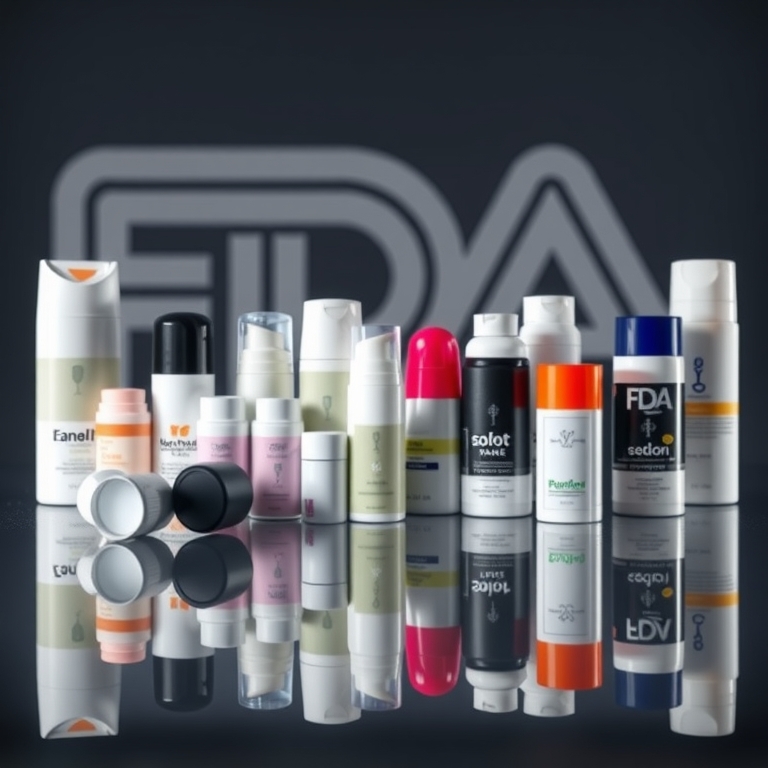In a significant move that underscores the ongoing vigilance of regulatory bodies over consumer safety, the U.S. Food and Drug Administration (FDA) has issued a recall on several popular deodorant brands due to concerns over harmful contaminants. This decision, which has sent ripples through the personal care industry, highlights the intricate balance between product innovation, safety, and consumer trust.
The recall specifically targets a range of deodorant products found to contain potentially hazardous levels of benzene, a chemical linked to various health issues. Benzene, a known carcinogen, is primarily used as a solvent in the chemical and pharmaceutical industries but has no place in personal care products. Its presence in deodorants has raised alarms due to the potential risks associated with prolonged exposure, including increased chances of developing leukemia and other blood disorders.
This development follows a series of recent recalls and warnings involving benzene contamination in various consumer products, including hand sanitizers and sunscreens. The FDA’s proactive approach in identifying and mitigating these risks is a testament to its commitment to ensuring that consumer health is not compromised by the products they use daily. The agency’s actions serve as a reminder to manufacturers about the critical importance of stringent quality control measures and rigorous testing protocols.
The companies affected by this recall have responded swiftly, emphasizing their commitment to consumer safety and transparency. Many have set up dedicated channels to facilitate returns and refunds for affected products, aiming to minimize inconvenience to consumers while also reinforcing trust. These companies have also initiated internal investigations to identify the source of contamination and prevent future occurrences. The swift response from manufacturers highlights the growing recognition within the industry of the importance of maintaining consumer trust and upholding brand integrity, especially in an era where information spreads rapidly and consumer awareness is at an all-time high.
For the deodorant market, which is valued at billions of dollars globally, such recalls can pose significant challenges. The industry faces the dual task of addressing immediate safety concerns while also reassuring consumers about the overall safety of their products. This incident may lead to increased scrutiny on ingredient sourcing, manufacturing processes, and supply chain transparency. Companies might need to invest in more robust testing methodologies to detect contaminants at earlier stages of production, thereby preventing similar occurrences in the future. This could also pave the way for advancements in formulation science, encouraging innovation in creating safer, more effective personal care products.
Additionally, this situation presents an opportunity for brands to differentiate themselves by prioritizing safety and transparency. Companies that proactively engage with consumers, providing clear information about product safety and any corrective measures being taken, are likely to emerge with a stronger reputation. This approach not only helps in retaining customer loyalty but also positions brands as leaders in an industry where consumer trust is paramount.
The recall also raises important questions about regulatory frameworks and the role of governmental oversight in ensuring product safety. While the FDA and other regulatory bodies play a crucial role in monitoring and addressing safety concerns, the onus of ensuring product safety ultimately lies with manufacturers. This incident could potentially lead to calls for stricter regulations and more rigorous testing standards, particularly for products that come into direct contact with the skin.
For consumers, this recall serves as a reminder of the importance of staying informed about the products they use. It highlights the need for vigilance and awareness in selecting personal care items, encouraging consumers to pay closer attention to product labels and ingredient lists. In an age where consumers are increasingly conscious of what they apply to their bodies, the demand for transparency and accountability from brands is likely to grow.
The broader implications of this recall could extend beyond the deodorant market, influencing consumer expectations and regulatory standards across the personal care industry. As consumers become more informed and discerning, the pressure on companies to uphold the highest safety standards will only increase. This could drive the industry towards more sustainable practices and formulations, reflecting a shift towards a more health-conscious and environmentally aware consumer base.
In conclusion, the FDA’s recall of deodorants over harmful contaminant concerns is a pivotal moment for the personal care industry. It underscores the critical importance of safety and transparency in maintaining consumer trust and highlights the ongoing challenges and opportunities faced by manufacturers in ensuring product integrity. As the industry navigates this complex landscape, the lessons learned from this incident will likely shape the future of product safety and innovation, ultimately benefiting both consumers and businesses alike.

Leave a Reply